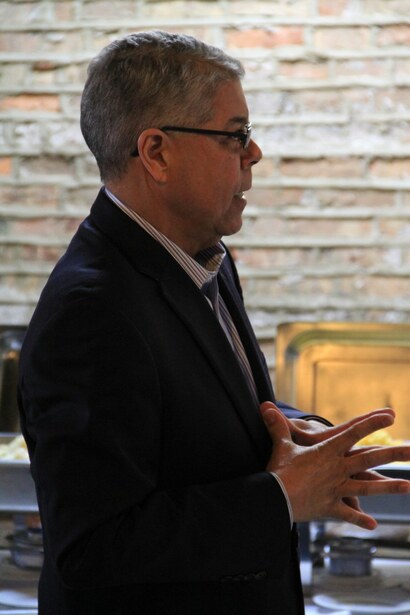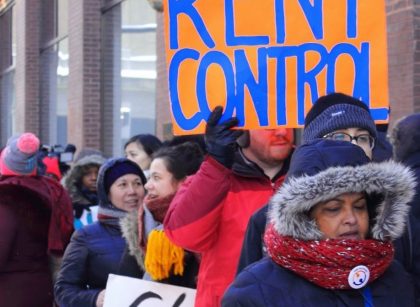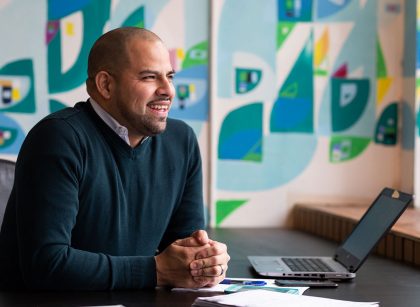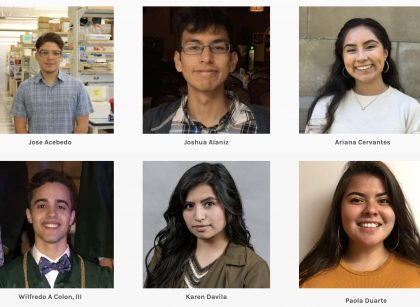
While the balance of 2020 is filled with uncertainty amid the raging, global war against COVID-19, members of the Chicago City Council’s Latino Caucus say they remain steadfast in fighting for their legislative agenda for the balance of the year. Housing, immigration and education are among those issues.
The caucus, a 12-member bloc of aldermen, represents 31 of 77 Chicago’s neighborhoods. In other words, the group of elected officials represent 40 percent of the city’s population and has attempted in years past to create local legislation with the city’s ever-growing Latino population in mind.
Alderman Roberto Maldonado, who represents the City Council’s 26th Ward, currently chairs the Latino Caucus. Maldonado, who has served on the City Council since 2009, talked with Chicago Mundo Hoy about some of the bloc’s key policy issues for the remainder of the year. He represents four communities on the city’s north side: Hermosa, Humboldt Park, Logan Square and Ukrainian Village.
Housing
New residential and commercial developments across Chicago in more recent years have resulted in consequences to long-time residents through a scenario commonly referred to as gentrification. It has played out in communities with and without heavy Latino populations throughout the city.
More recently, the Latino Caucus attempted unsuccessfully to institute a fee, which would have been placed on developers, for conversion and demolition projects that displace residents. “We wanted to add more to the construction permit fees,” Maldonado said. “But we were not successful because this (mayoral) administration pushed back.”
Details are still being worked out within the caucus, Maldonado said, but the goal is to unveil a “really robust ordinance” that would help longtime residents remain entrenched within the Chicago communities they long have called home and still have affordable options.
Because the so-called gentrification practice is widespread throughout different sections of Chicago, Maldonado said he is hopeful some type of additional legislation will eventually come to the surface that will receive broad support on the City Council.
“We are still working on what would be the best legislation,” Maldonado said. “We need to discuss, at the caucus level, how we can replicate this in other wards. I am of the belief it is difficult to have one single, big ordinance. The needs are different from one area to the next.”
Immigration
While a number of the finer points surrounding immigration-related policy are in the hands of state and federal lawmakers at present, Maldonado said they remain at the top of the caucus’ legislative agenda. He said he and his elected colleagues on the caucus remain eagle-eyed in watching what is taking place within higher levels of government.
At a more local level, Maldonado said the caucus continues to monitor the Chicago Police Department’s use of a gang database, which he described as “grossly unfair.” A class-action lawsuit filed in 2018 against the department alleged the database targeted people of color. Early this month, department officials said efforts to overhaul the system are underway.
While there are a number of issues at the federal level still working through the Appellate Court system concerning sanctuary cities, Maldonado said he and others on the caucus are interested in making amendments to the city’s Welcoming Cities Ordinance, including the elimination of what Maldonado described as “carve-outs.” “We need to be very focused, and very specific,” Maldonado said of any amendments that eventually come to light.
Education
As aldermen, members of the caucus primarily focus on municipal issues. But Maldonado said education is a frequent item that remains on the bloc’s priority list. An offshoot foundation within the caucus, for example, has a scholarship program.
In throwing its support behind public education, Maldonado said he and others within the caucus adamantly believe residents heading the ballot box, rather than the mayor, should have the say in electing members to the Chicago Public Schools Board of Education.
“We believe in a truly elected school board,” Maldonado said. “We need people on there who will promote and push for and support Chicago Public Schools.”
Maldonado said the caucus continues to seek out ways of changing up the long-held practice of having the mayor appoint members to CPS’ Board of Education, though no specifics are on the table at the moment.
A statement on the Board of Education’s website describes Mayor Lori Lightfoot’s most recent appointees on the 7-member body as “a diverse group of committed, distinguished and highly-accomplished experts in their professions, as well as prominent leaders in social, civic and cultural affairs.”
- Optimism after the unrest - August 10, 2020
- Storied recycling company General Iron poised to relocate to East Side - June 26, 2020
- Head of Chicago Latino Caucus outlines legislative priorities for 2020 - March 23, 2020



